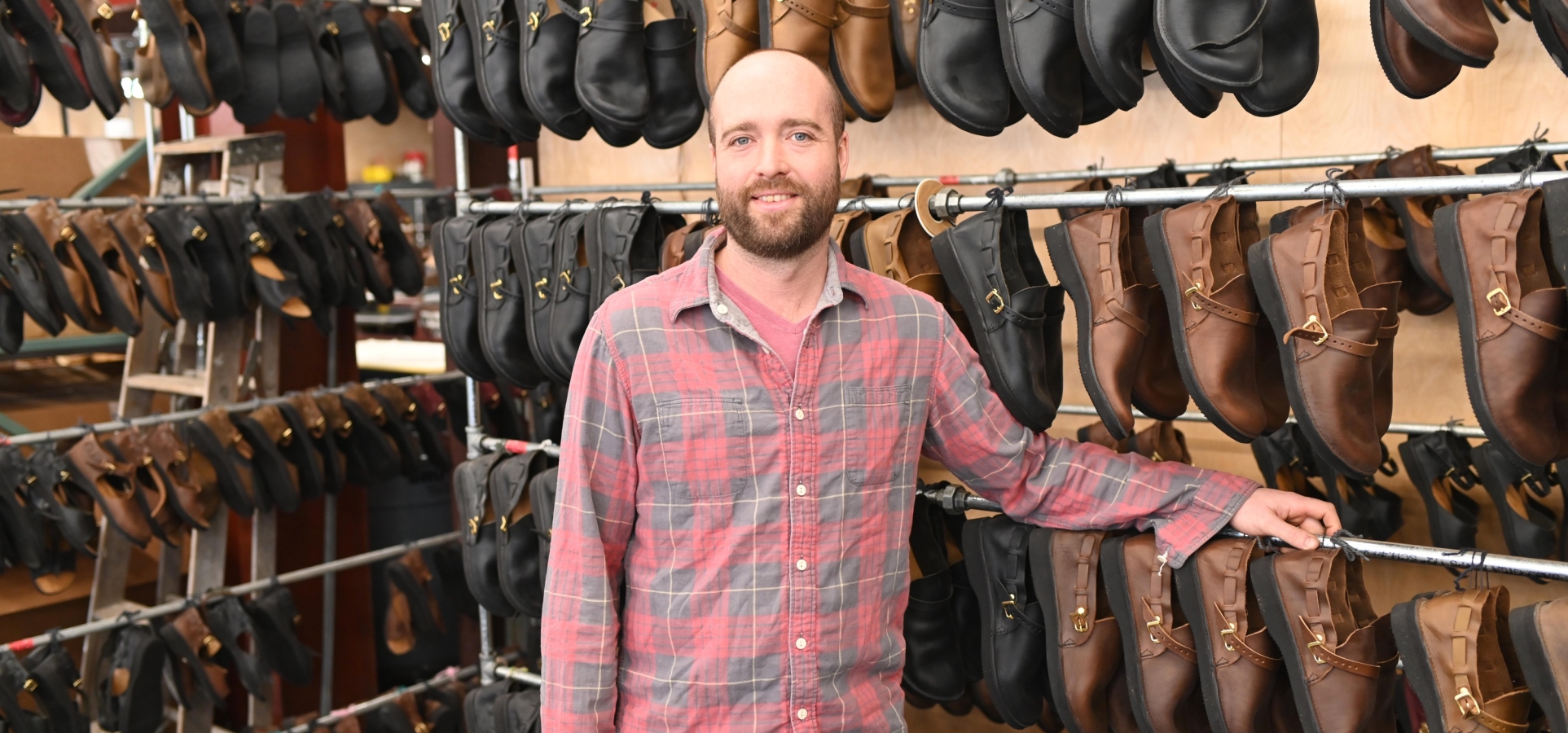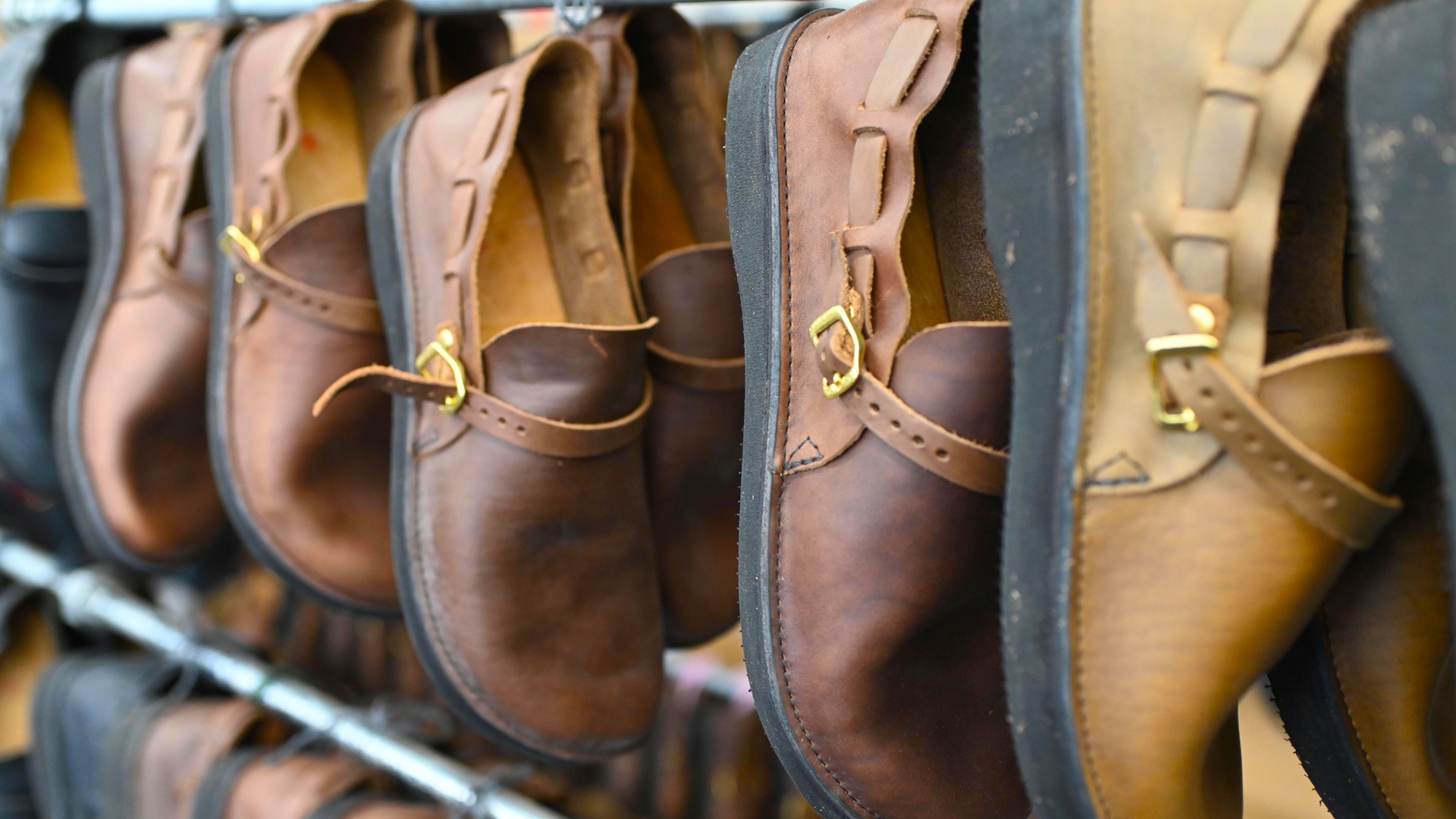The Aurora Shoe Company
Handcrafted Authenticity in the Finger Lakes
In a culture that’s saturated with brands boasting about “authenticity,” “hand-made,” and “top-quality materials,” it’s hard to talk convincingly about the real thing.
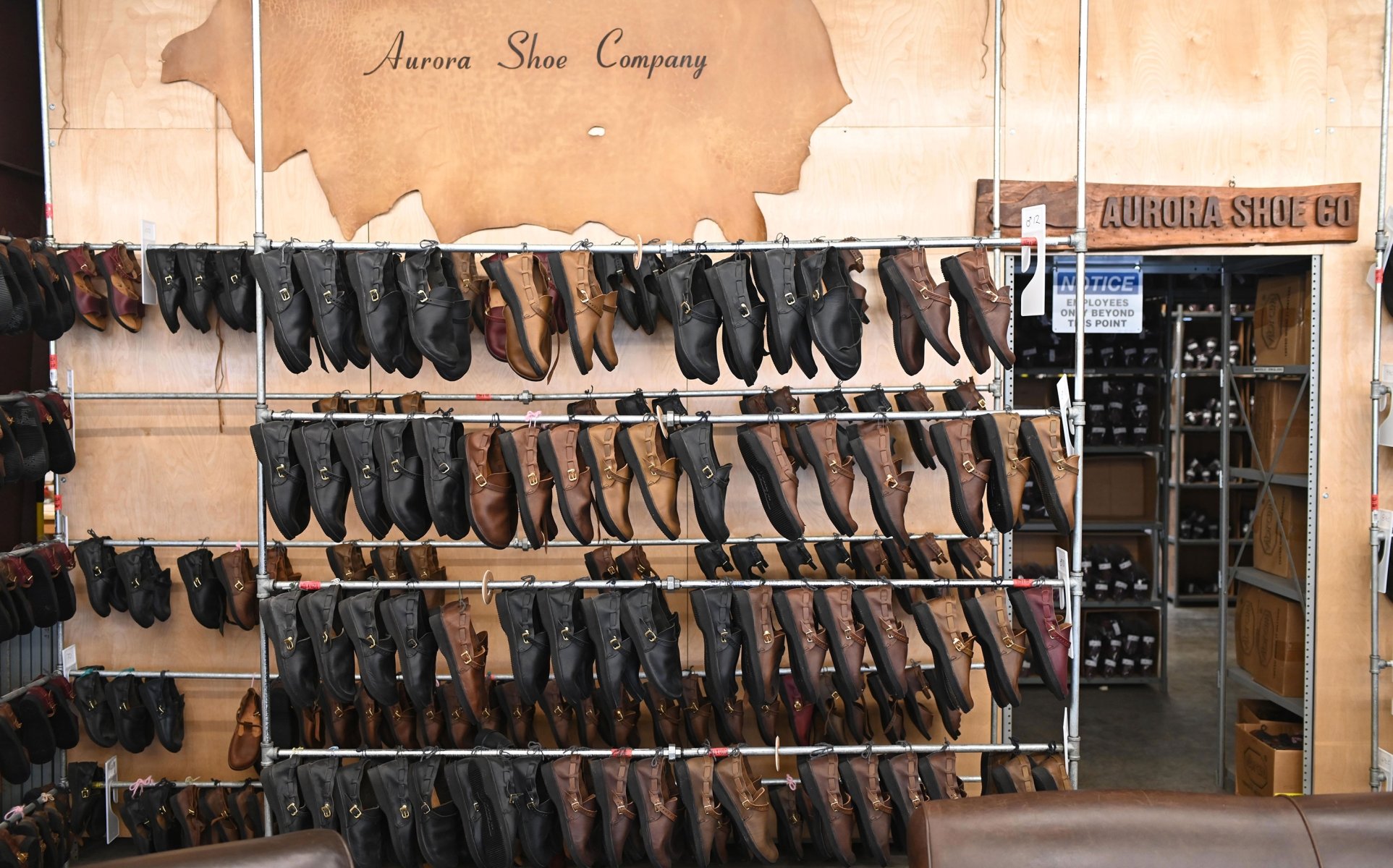
The Aurora Shoe Company is the real deal.
They’ve been making unique shoes of superior quality since 1991, long before the recent outbreak of online microbrands selling “authentic” clothing. In an industry plagued by cheap knockoffs, diminishing returns, and disinterested consumers, the Aurora Shoe Company has a dedicated international fan base—loyal return customers who happily promote their product. Other companies spend astronomical amounts of money courting social media influencers, chasing trends, and maintaining absolute control over their brand narrative; Aurora Shoe Company just keeps making shoes: more or less the same ones they’ve made for decades, out at their unassuming rural workshop in the Finger Lakes region of New York.
“We don’t do a lot of keeping up with fashion in our designs,” says Dave Binns, owner of the Aurora Shoe Company. “We hit a sweet spot where customers who like the style will keep coming back to add another pair to their collection, or send in their old pair to get resoled. We have some customers who have had their shoes for over twenty years and continue to put new soles on them.”
The style of the shoes more or less came with the company that Dave purchased from its original owners in 2009; so, too, did an improbable connection to Japan, where Aurora Shoes continue to be highly sought-after.
The overseas journey of Aurora shoes was pure serendipity. An enterprising Japanese retailer named Hayato Takasu was scouting for unique American brands to stock in his Tokyo clothing store. While in New York City, Hayato happened to see a pair of Aurora shoes worn by another attendee. Something about the unusual shoes spoke to him. Hayato made the trip up to the workshop in Aurora (which, at that time, was housed in what is now the Schoolhouse.) He brought one pair of Aurora shoes back to Tokyo; then ordered a dozen more; then a hundred pairs.
Since their Tokyo debut in 1993, demand for the shoes has increased exponentially. Hayato currently orders over four thousand pairs of Aurora shoes each year. The shoes have gone on to find new markets in China, Korea, and Taiwan.
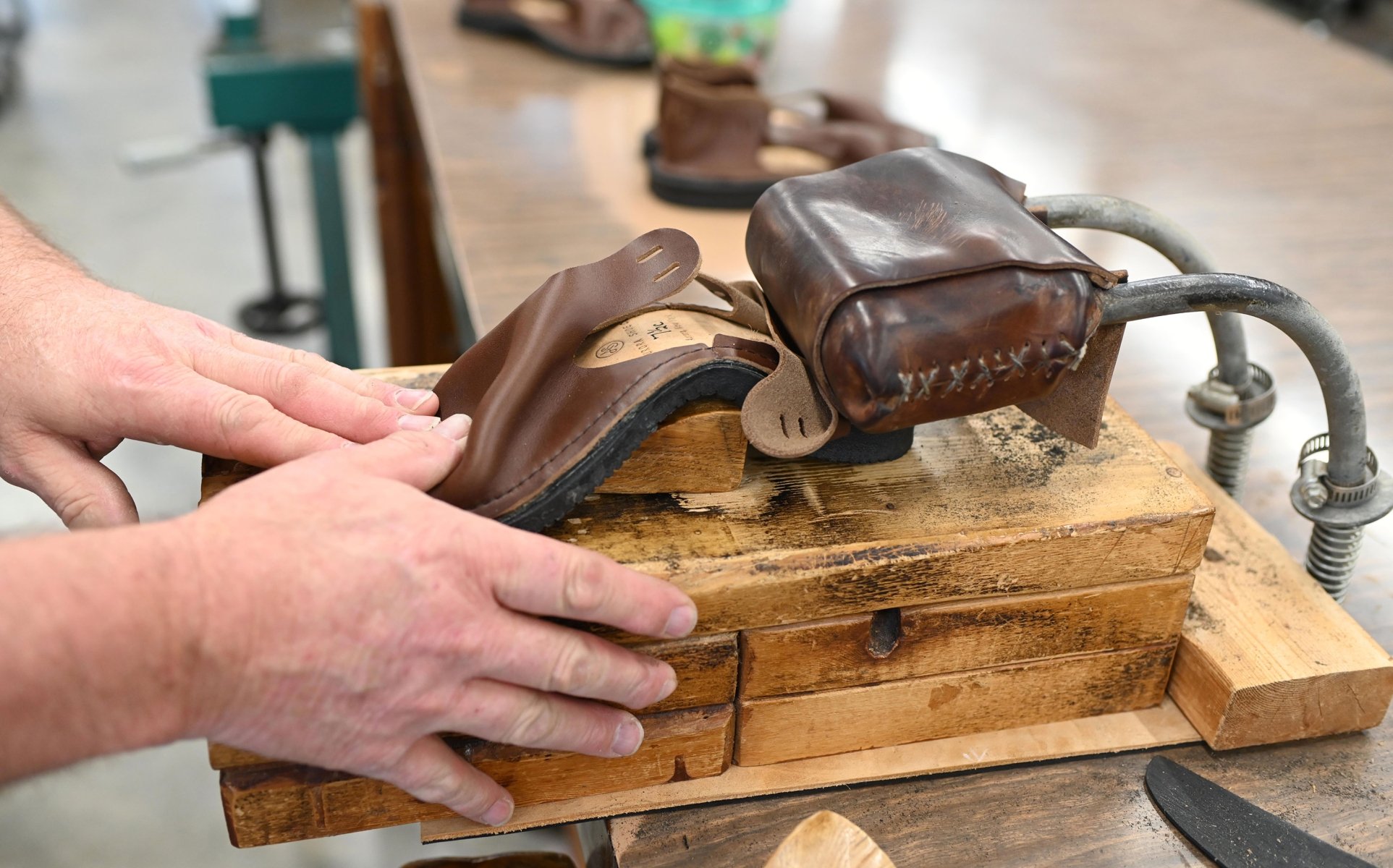
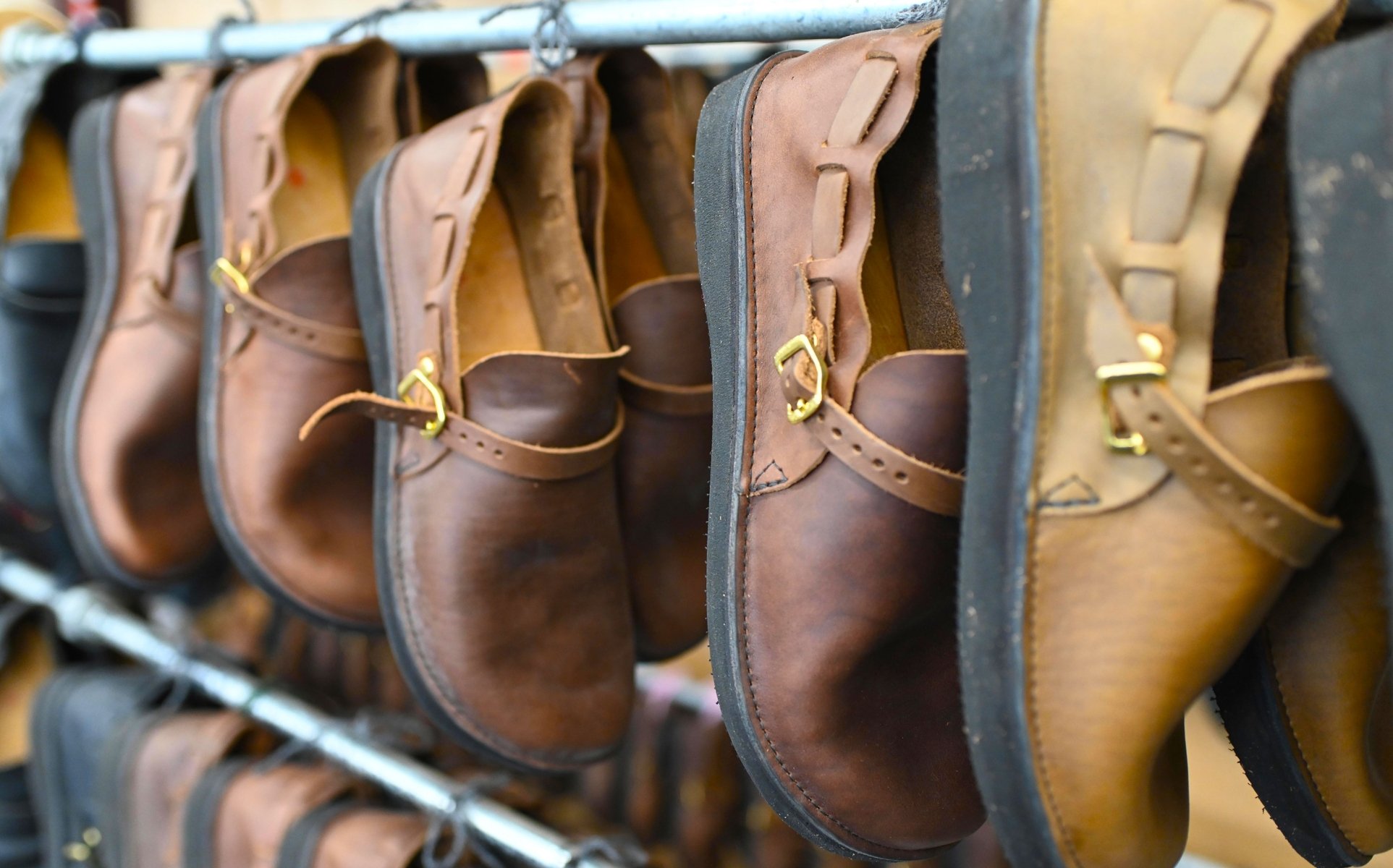
“‘American Made’ has a certain cachet in Asia, more than it does here [in the U.S.],” explains Dave. “We saw a little bit of a resurgence in popularity here after the last recession, but it’s more authentic there. They’re willing to pay a premium for a good-quality pair of shoes that’s going to last them for a long time, whereas I think we have more of a fashion-centered, quick turnover mentality here. Most people don’t expect to have a pair of shoes that’ll last them for five years or longer.”
There are longstanding cultural trends in Asia that value simple, well-made, hand-crafted goods. Aurora shoes are a natural fit for that aesthetic. The shoes are made from Horween leather, which is one of the oldest and most respected multi-generational tanneries in America. The shoes were originally made entirely by hand—individually, by a single cobbler—until he was unable to keep up with demand and sold the production rights to Dave’s predecessors. Since then, the process has become slightly more automated, thanks to Dave’s background in mechanical engineering. But it’s still very much a hands-on product: each of the workshop’s ten employees specialize in about five steps in the fifty-step assembly of each shoe.
That commitment to material quality and careful production makes the shoes last longer and age better than their fast-fashion competitors, which has endeared Aurora shoes to an international audience.
“Those tactics of compromising that other companies have taken… I think they fool the customer in the short term, but over time, it destroys their brand,” says Dave. “I think consumers are starting to recognize authenticity. Our biggest fans tend to be really thoughtful consumers. They want to understand more about where the product comes from, and they want to feel good about their purchase.”
“Feeling good” extends beyond just the emotional satisfaction of a well-made product: Aurora shoes also fill a niche for health-conscious consumers. Unlike most contemporary shoe designs, which tend to contort the wearer’s foot to match a certain aesthetic, Aurora shoes allow for a more natural foot posture. This can be a huge benefit for consumers with back pain or joint issues.
“We have chiropractors recommending their clients get our shoes purely for the benefit of a wider foot bed with a flexible arch,” says Dave. “If you become dependent on footwear that’s too supportive, your foot’s not going through the same motions and building up strength.”
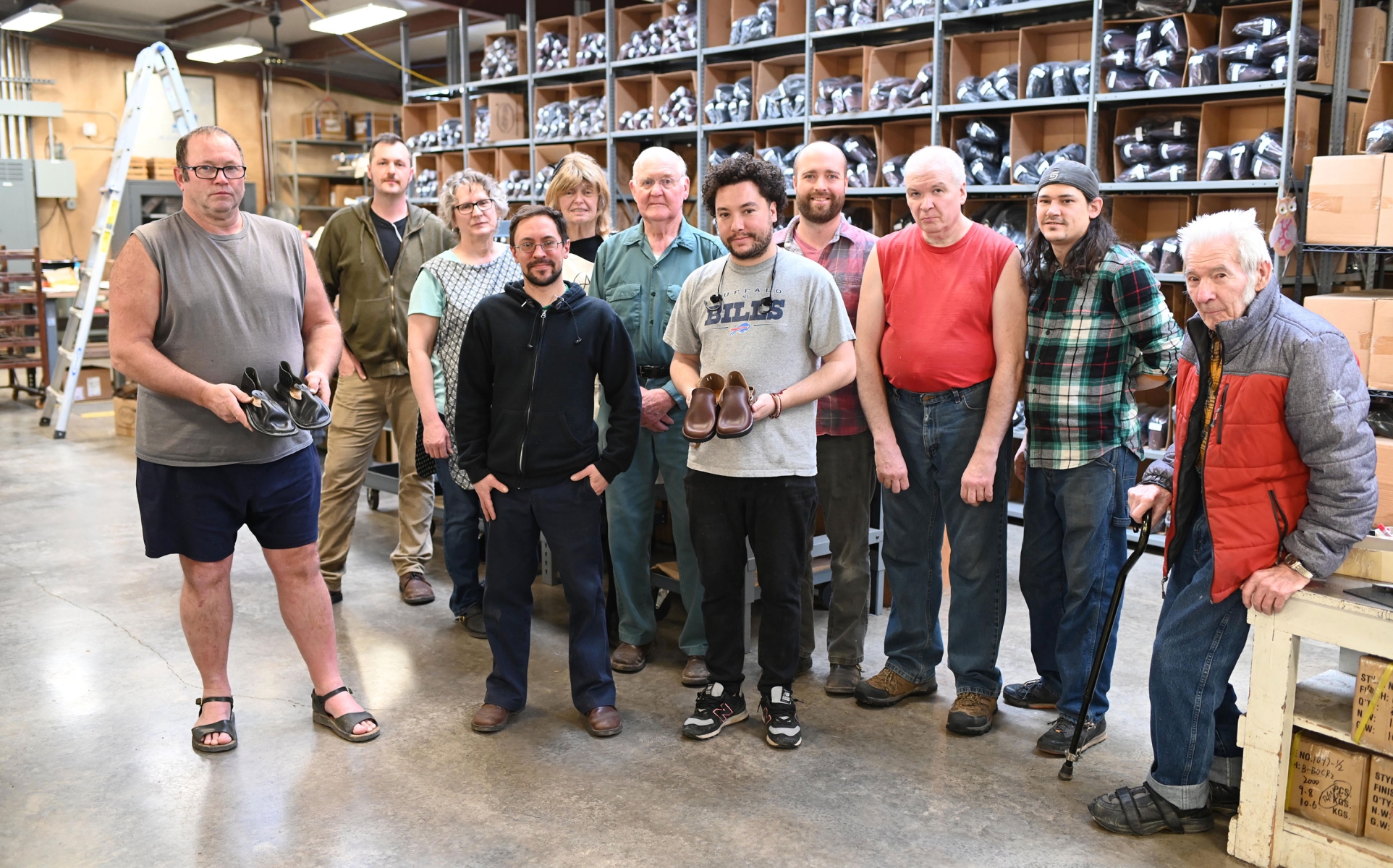
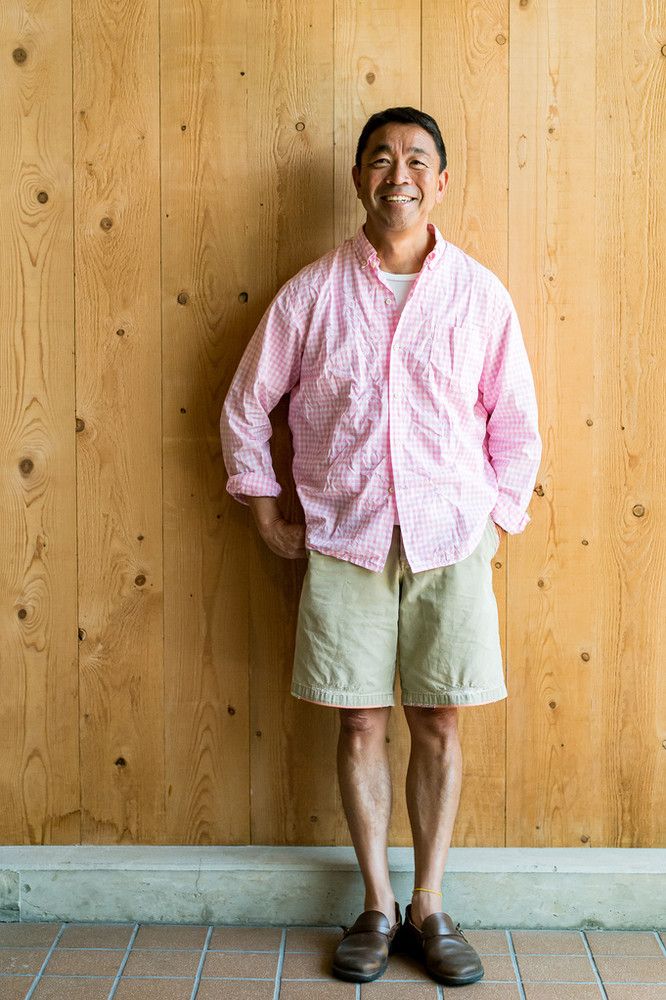
David Binns, Owner of Aurora Shoe Company
There’s also a strong ethic of environmental stewardship behind the product. The shoes themselves are made to support a low-waste lifestyle: leather and rubber are both natural and renewable resources, as opposed to the environmentally depleting synthetics used in fast-fashion shoes. As their most dedicated customers can attest, Aurora shoes can be resoled for decades; mass-market shoes tend to have cemented soles, which are practically impossible to resole. Shoes with non-replaceable soles become worthless once the bottom wears out—even if the upper 90% is still in good condition—and often end up in landfills, wasting huge amounts of material.
Beyond the environmental merits of the product itself, the Aurora Shoe Company strives to make their daily operations as sustainable as possible. The workshop is heated with an outdoor wood-fired boiler. Cardboard boxes are recycled for inventory tracking. Leftover leather scraps are either sold on to local artisans or used to make new products in-house; most recently, Aurora Shoes has been experimenting with leather belts, wallets, and notebook holders made of off-cuts from the shoemaking process.
Innumerable microbrands peddling hand-made authenticity have expired in the decades since Aurora Shoe Company started. It seems improbable that a ten-person workshop in upstate New York farm country, selling almost willfully unfashionable shoes should beat the odds. Their success is a testament to a kind of honesty that’s increasingly rare in today’s consumer culture: when the Aurora Shoe Company says their shoes are “authentic,” “well-made,” and “high quality,” they really mean it—and their customers can tell.
Dave is optimistic that Aurora Shoe’s brand of honesty will win out in the long run. As the gold-rush mentality of online retail exhausts itself, he sees an opportunity for small, thoughtfully curated clothing boutiques to succeed in the U.S.—the kind that are more common overseas, like the Tokyo storefront that drove so much of Aurora Shoe’s early success. Eventually, the market will come back around to products that are made to last.
“Now it’s just trying to shift the American mentality toward it being okay to spend a little more for something that lasts a lot longer, and you can feel good about supporting your local economy, and fair wages, and more stringent environmental standards,” says Dave. “I’m proud that we’ve never compromised. We have customers from 25 years ago who can attest to that, because they’re still wearing our shoes.”
The Aurora Shoe Company is located at 1690 State Route 90, King Ferry NY, 13081. Visitors to their workshop can get a discount on in-store purchases, as well as further savings on factory seconds with minor imperfections. The workshop is open on most Fridays from 10:00 a.m. to 4:00 p.m. You can buy their products online on the Aurora Shoe Company website, or on their Etsy page.
